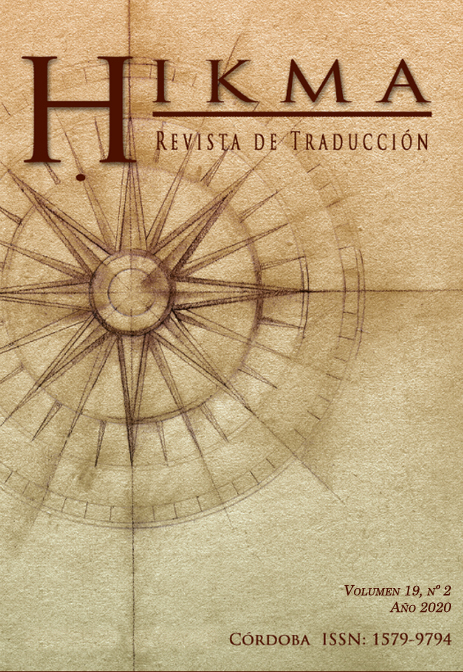The reception of humor in the original and translated versions of the narrative of Naguib Mahfuz: Empirical analysis applied to the case of Khān al-Khalīlī
Main Article Content
Abstract
Our aim is an empirical analysis of humor reception in the Spanish translation of Khān al-Khalīlī by Naguib Mahfuz. We intend to measure its degree of transmission of humor with regard the original version and reveal any possible relationship between this degree and the ease of reproducing the hilarious mechanisms in the target language. Two questionnaires consisting of 20 segments extracted from this novel and its translation to Spanish were submitted to the judgment of native speakers of both languages. The results have shown a rate of transmission of only 30% in the translated version. The existence of any relationship between this rate and the ease of reproducing the hilarious mechanisms in Spanish has not been demonstrated. There are two factors that can contribute to the decrease of humor: a) an inaccurate translation and b) an empathy that the receiver may have regarding the subject that motivates laughter.
Downloads
Article Details

This work is licensed under a Creative Commons Attribution-NonCommercial-ShareAlike 4.0 International License.
Authors who publish with this journal agree to the following terms:
1. Authors retain copyright and grant the journal right of first publication with the work simultaneously licensed under a Creative Commons Attribution License that allows others to share the work with an acknowledgement of the work's authorship and initial publication in this journal.
2. Authors are able to enter into separate, additional contractual arrangements for the non-exclusive distribution of the journal's published version of the work (e.g., post it to an institutional repository or publish it in a book), with an acknowledgement of its initial publication in this journal.
3. Authors are permitted and encouraged to post their work online (e.g., in institutional repositories or on their website) prior to and during the submission process, as it can lead to productive exchanges, as well as earlier and greater citation of published work (See The Effect of Open Access).

